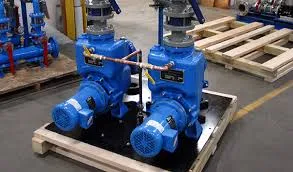Swahili
- Afrikaans
- Albanian
- Amharic
- Arabic
- Armenian
- Azerbaijani
- Basque
- Belarusian
- Bengali
- Bosnian
- Bulgarian
- Catalan
- Cebuano
- Corsican
- Croatian
- Czech
- Danish
- Dutch
- English
- Esperanto
- Estonian
- Finnish
- French
- Frisian
- Galician
- Georgian
- German
- Greek
- Gujarati
- Haitian Creole
- hausa
- hawaiian
- Hebrew
- Hindi
- Miao
- Hungarian
- Icelandic
- igbo
- Indonesian
- irish
- Italian
- Japanese
- Javanese
- Kannada
- kazakh
- Khmer
- Rwandese
- Korean
- Kurdish
- Kyrgyz
- Lao
- Latin
- Latvian
- Lithuanian
- Luxembourgish
- Macedonian
- Malgashi
- Malay
- Malayalam
- Maltese
- Maori
- Marathi
- Mongolian
- Myanmar
- Nepali
- Norwegian
- Norwegian
- Occitan
- Pashto
- Persian
- Polish
- Portuguese
- Punjabi
- Romanian
- Russian
- Samoan
- Scottish Gaelic
- Serbian
- Sesotho
- Shona
- Sindhi
- Sinhala
- Slovak
- Slovenian
- Somali
- Spanish
- Sundanese
- Swahili
- Swedish
- Tagalog
- Tajik
- Tamil
- Tatar
- Telugu
- Thai
- Turkish
- Turkmen
- Ukrainian
- Urdu
- Uighur
- Uzbek
- Vietnamese
- Welsh
- Bantu
- Yiddish
- Yoruba
- Zulu
Telephone: +86 13120555503
Email: frank@cypump.com
Oktoba . 07, 2024 18:20 Back to list
sewage ejection system
The Importance of Sewage Ejection Systems
Sewage ejection systems play a vital role in modern sanitation and wastewater management, particularly in areas where gravity drainage is not feasible. These systems are designed to transport sewage from lower elevations to higher ones, ensuring proper disposal and preventing environmental contamination.
At the core of a sewage ejection system is the ejector pump, which is responsible for lifting waste material and water through an underground system of pipes. Typically made of durable materials to withstand harsh conditions, these pumps activate when the sewage level in a holding tank rises to a certain point. Once triggered, the pump forces the sewage through a two-pipe system—one for incoming waste and the other for expelled waste, effectively moving it towards a municipal sewer line or a septic system.
One of the primary benefits of sewage ejection systems is their ability to maintain sanitary conditions in residential, commercial, and industrial settings. For instance, homes situated below the main sewer line level would not be able to drain wastewater through conventional means. Without an effective sewage ejection system, these properties would risk backing up sewage, leading to unsanitary conditions and potential health hazards.
sewage ejection system

Additionally, these systems are essential in urban planning, particularly during the construction of basements or underground facilities. Properly designed sewage ejection systems allow for the effective management of wastewater, supporting infrastructure development while minimizing environmental impact.
Regular maintenance is crucial to the performance of sewage ejection systems. Homeowners and property managers should routinely inspect the ejector pumps and associated components to ensure they're functioning effectively. Clogs, wear and tear, and electrical failures can disrupt their operation, leading to costly repairs and potential health risks due to sewage overflow.
Another important aspect is the environmental consideration of sewage ejection systems. When functioning properly, they prevent untreated sewage from entering waterways, thereby protecting ecosystems and public health. The treatment of sewage through these systems also ensures that clean, safe water can be returned to the environment.
In conclusion, sewage ejection systems are an indispensable component of modern wastewater management. By efficiently transporting sewage and maintaining sanitary conditions, these systems help safeguard public health and protect the environment from contamination. Proper maintenance and awareness are key to ensuring their longevity and effectiveness in our communities.
-
Heavy-Duty Mining Sludge Pumps - Wear-Resistant Slurry Handling
NewsAug.02,2025
-
Horizontal Split Case Pump with GPT-4 Turbo | High Efficiency
NewsAug.01,2025
-
ISG Series Pipeline Pump - Chi Yuan Pumps | High Efficiency, Durable Design
NewsAug.01,2025
-
Advanced Flue Gas Desulfurization Pump with GPT-4 Turbo | Durable & Efficient
NewsJul.31,2025
-
ISG Series Vertical Pipeline Pump - Chi Yuan Pumps | Advanced Hydraulic Design&Durable Construction
NewsJul.31,2025
-
ISG Series Vertical Pipeline Pump - Chi Yuan Pumps | Energy Efficient & Low Noise
NewsJul.31,2025










